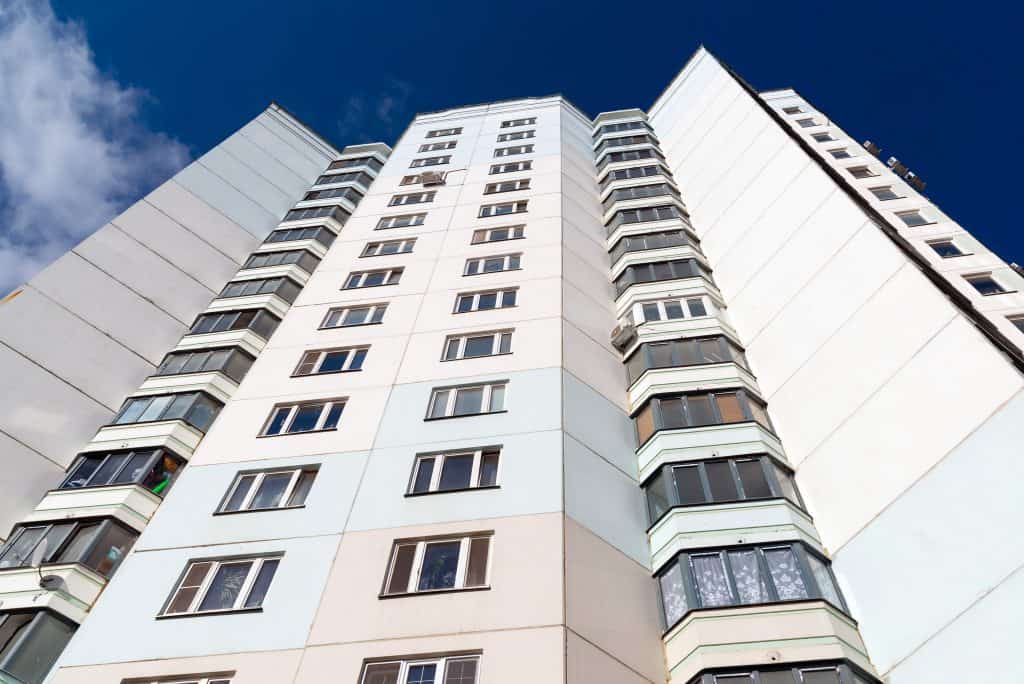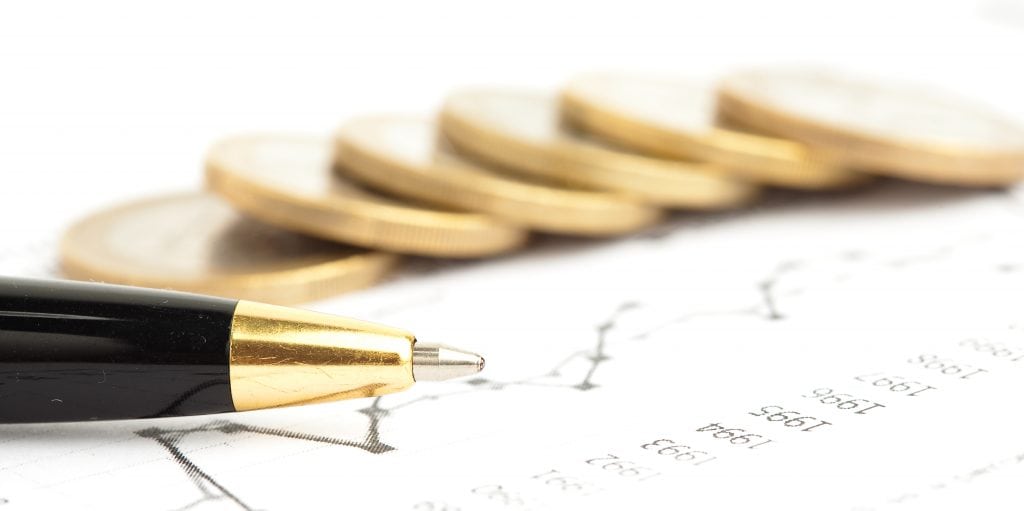When selling a condominium, taxes may be incurred under certain circumstances. However, this does not happen automatically. Whether you are liable to pay tax on the sale and how high the tax is depends on various factors. For example, it depends on how long you have owned the condominium yourself and to whom you want to sell it. If you make a profit from the sale of a condominium, speculation tax may apply. It is important for you to find out in advance and decide whether you want to complete the sale and pay tax if applicable. In some cases, it may be advisable to wait a little longer before selling in order to avoid paying tax.
Attention: Please note that all information is provided without guarantee and that this article does not constitute tax advice. For detailed information on your individual circumstances, please consult your tax advisor.
How is profit on the sale of condominiums taxed?
As with all other properties, tax is only payable on the sale of condominiums if you have not used them yourself or if you sell more than three properties within a short period of time. Like houses and land, condominiums are classified as real estate. But how are condominiums taxed when you sell them? Do I have to pay tax at all?
There is no clear answer to these questions. The tax office can levy a speculation tax under certain circumstances. The amount of this speculation tax depends on the profit you made while you owned the condominium. Your personal tax rate and the number of years you have owned the property also play a role.
A calculation example:
You bought the condominium five years ago for a price of EUR 200,000. Your investment in the apartment amounts to EUR 20,000. You sell the apartment for a price of EUR 250,000. Your profit minus the investment costs is therefore EUR 30,000. Your personal circumstances result in a speculation tax of 40 percent. This corresponds to an amount of EUR 12,000.
If the apartment was purchased more than ten years ago, you do not have to pay speculation tax under any circumstances. The same applies if you have used the condominium yourself.
Selling a condominium: who has to pay speculation tax?
Do I have to pay taxes if I want to sell my condominium? What happens if you have inherited the condominium? Is there always a speculation tax when selling a condominium? Many owners ask themselves these questions before deciding to sell their condominium. And this is very important, because with a little basic knowledge you can save money.
Speculation tax is not always due
Before selling a condominium, you should always check whether speculation tax could be due. Whether you originally bought the apartment yourself or inherited it does not matter at first. What is more important is whether you lived in the apartment yourself or let someone else rent it. If you lived in the apartment yourself and decide to sell it, you do not have to pay speculation tax. The same applies if more than ten years have passed since the purchase or inheritance.
Special feature of an inheritance
It is important for heirs to know that the use of the property by the deceased also plays a role: If the deceased lived in the home themselves, no inheritance tax is payable. As the heir, you assume this status and can count it towards the ten-year period. However, if the deceased did not use the apartment themselves and purchased the condominium less than ten years ago, you as the heir will pay speculation tax in addition to inheritance tax after the sale. The calculation for an inheritance is based on the sale price and the deceased’s investment costs. Here too, you assume the status of heir.

Sale of a condominium: How is the 10-year speculation tax period calculated?
If you want to sell your condominium, the ten-year period for speculation tax plays an important role. It is therefore not a good idea to sell a condominium if you have owned it for nine years, for example, and now want to sell it. You can save a five-figure sum if you wait another year, and you can calculate the property deadline quite easily. You should therefore only plan to sell your apartment before ten years have passed if you urgently need the money.
When does the 10-year period for speculation tax begin?
The ten-year period begins to run from the date on which you purchased the property. When buying a property, the situation is quite clear. If you have acquired the property through an inheritance, the time during which the condominium was in the hands of the deceased counts. This means that you can sell the apartment immediately after the inheritance without paying speculation tax if the deceased owned it for more than ten years or if they lived in it themselves. Your own status is irrelevant in this context. If you take over the home and do not decide to buy it immediately, the years of ownership by the deceased will still count. This means that you inherit not only the condominium, but also the time that the deceased owned it. The same applies if you have received the apartment as a gift: The periods of the previous owner also count here.
How high is the speculation tax when you sell a condominium?
You have decided to sell your condominium and are wondering how high the speculation tax for the apartment is. If you have to pay speculation tax on the sale of your condominium, you can calculate in advance how high the tax will be. To do this, you need to know which values make up the tax and how high the tax rate is.
Calculation of speculation tax from the profit
The decisive factor for calculating the tax is not the purchase price of the apartment or the current market value. This is where speculation tax differs from inheritance tax, for example, which is based on the value of the condominium. In order to calculate the profit, the tax office takes the purchase price of the condominium as the basis for the calculation. As the purchase was made less than ten years ago when speculation tax was due, it is usually possible to calculate this figure without any problems. Provide documents relating to the purchase that you can submit as proof.

Investment costs
Have you invested in the apartment? You can deduct these costs from the original purchase price. They reduce the profit and mean that you pay less speculation tax.
Price for the sale
The sales price is another important factor in determining the speculation tax. You can only calculate the speculation tax once you know how much you will receive for your condominium.
Value for the calculation
If you know these figures, the basis for calculating the speculation tax is easy to determine: You deduct your investment costs and the original purchase price of the property from the sales price. The value you receive is the basis for calculating the speculation tax.
Example:
EUR 100,000 Purchase price for the property
EUR 20,000 Investment costs
EUR 200,000 Sales proceeds
EUR 80,000 Calculation basis for speculation tax
Determine the tax rate
To find out the amount you have to pay to the tax office, it is important to know your personal tax rate. The speculation tax is not calculated according to a fixed tax rate. The percentage rate is therefore between twelve and 42 percent. The tax rate is therefore based on your earnings: the more you earn, the more income tax you pay. If you sell a property as a low-income earner, you will therefore pay less speculation tax than if you earn very well and have a correspondingly high tax rate.
Calculation example for low-income earners:
A low-income earner has a personal tax rate of 15 percent. He would therefore pay EUR 15,000 speculation tax on the EUR 80,000 profit from the sale of the condominium.
Calculation example for high earners:
A property owner with an income above the German average has a personal tax rate of 35%. With a profit of EUR 80,000 from the sale of the condominium, he pays a speculation tax of EUR 28,000.

When is the sale of a condominium tax-free?
You have various options for selling your condominium without paying tax. Find out in advance, because it is annoying if you have to pay tax when you could have sold the condominium tax-free. These options allow you to sell without paying tax:
You have owned the condominium for at least ten years
If you have owned the condominium for at least ten years, the sale is generally tax-free. This also applies if you have never lived in the apartment yourself. Please note the special feature of an inheritance or gift: the years that the previous owner held the apartment count towards the ten-year period.
You use the apartment yourself
Would you like to sell a condominium that you have lived in yourself, for example because you want to expand due to new life plans? In this case, the time during which you owned the condominium is irrelevant. Even if ten years have not yet passed, you can sell the apartment without incurring speculation tax.
It is a second or vacation home for own use
Do you own a condominium that you have used as a second home or vacation home? In this case too, there is no time limit for saving on speculation tax: You can sell the apartment before the ten-year period expires without paying speculation tax.

You are selling an apartment building in which you have lived in an apartment yourself
This variant is also possible: You are the owner of a house in which there are several apartments. You live in one of these apartments yourself. In this case, you only pay speculation tax on the value of the house that relates to the rented apartments. The tax office calculates this value on a pro rata basis. You live in one of these apartments yourself. In this case, you only pay speculation tax on the value of the house that relates to the rented apartments. The tax office calculates this value on a pro rata basis.
You did not make a profit on the sale
If the example calculation results in a negative value, for example because property prices have fallen sharply in the period between purchase and sale, you do not have to pay speculation tax. In this case, there is no profit to justify the speculation tax.
You do not exceed the general exemption limit of EUR 600 for profits made
Due to the high price of real estate, this case is rare: You have an annual exemption limit of EUR 600. No speculation tax is payable below this exemption limit. If you remain below this exemption limit when selling your condominium, you do not have to pay the tax. This is the case, for example, if the proceeds and the original purchase price are almost identical or if you have invested heavily in the condominium.
When does speculation tax no longer apply due to own use of the property?
The speculation tax for real estate does not apply to owner-occupation. This also applies if the ten-year period has not yet expired. However, there is still a requirement: in order to be exempt from speculation tax on real estate, you must use the property yourself for three years, i.e. the year of sale and the two preceding years. If you want to take advantage of this option, you must use the apartment for at least the year of sale and the two years prior to that. In this way, the tax authorities prevent people from trying to occupy the property themselves only for a short time in order to save tax.
Transfer to relatives does not generally count as own use
If you leave the apartment to relatives, this is not considered personal use and therefore cannot be recognized. The only exception are your own children if you are entitled to child benefit or an allowance in accordance with Section 32 (6) EStG.

How can you avoid speculation tax when selling your home?
Is it possible to avoid speculation tax, for example by selling to relatives or through installment plan?
Admittedly, it is very difficult to avoid speculation tax. If you sell to relatives, this is not possible. The advantages of transferring the right of use to a relative only apply in the case of an inheritance or a gift. You may be able to avoid speculation tax if you register a second home for two years before the sale and in the year of the sale itself. However, this procedure will not help you if you intend to sell immediately. This means that there are no real ways to avoid paying speculation tax, apart from these:
* Own use in the year of sale and the two preceding years
* Inheritance or gift of the property with transfer of the ten-year period
How many properties can you sell without paying trade tax?
When selling a condominium, you must observe the three-property limit. If you sell more than three properties within five years, the tax office will assume that you are engaged in a commercial activity. In terms of speculation tax, nothing changes if you sell more than three properties during this period. However, you are obliged to pay trade tax.
Condominium or apartment building
For the three-property limit, it does not matter what kind of property you want to sell. The legal basis applies both to condominiums that are individually located and to apartment buildings. Business tax is not payable on the sale of two condominiums within a three-year period. This means that you can avoid paying the tax by careful planning.
Tax office makes the final decision
Please note that the 3-year limit is fluid. The tax office makes the final assessment as to whether the sale is a commercial sale or not. This means that the tax office can classify fewer or more sales within the five-year period as commercial.
Is the sale of the condominium tax-deductible?
Do you have the option of deducting the sale of the apartment from tax? This is not possible directly. This means that the sale of the apartment itself is not tax-deductible. However, you do have the option of declaring the sale of the apartment on your tax return.
You can deduct the following costs:
* Brokerage fees
* Notary fees
* Costs for advice from a lawyer
* Appraisal costs
* Fee for entry in the land register
* Costs for advertisements, expenses for relevant trips
* Sales-related telephone calls
* Costs for modernization and repairs
Enter the costs in the fields provided. If the tax office has any queries about the individual items, you will receive feedback.



